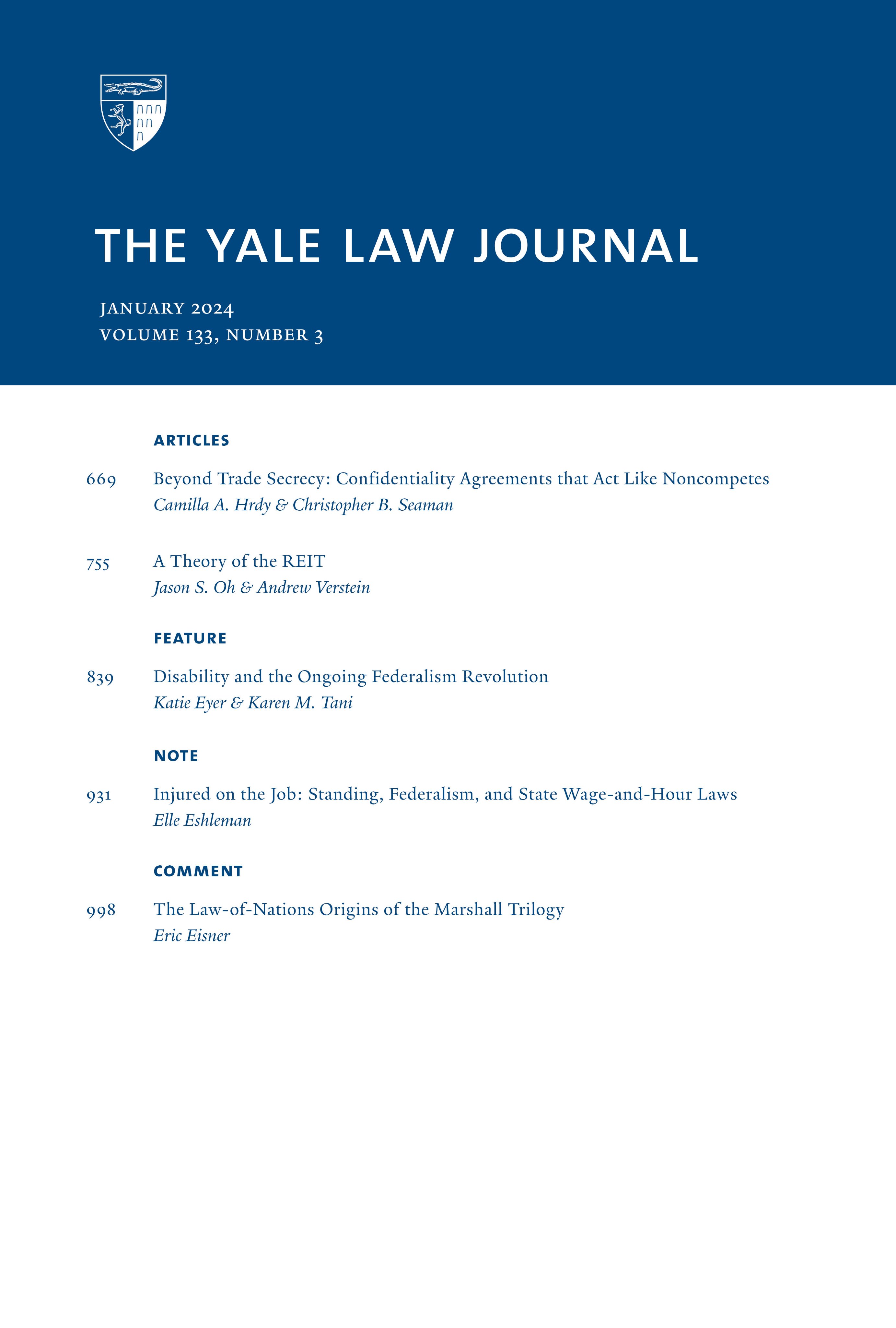Pleading Poverty in Federal Court
IF 5.2
1区 社会学
Q1 LAW
引用次数: 3
Abstract
What must a poor person plead to gain access to the federal courts? How do courts decide when a poor litigant is poor enough? This Article answers those questions with the first comprehensive study of how district courts determine when a litigant may proceed in forma pauperis in a civil lawsuit. This Article shows that district courts lack standards to determine a litigant’s poverty and often require litigants to answer an array of questions to little effect. As a result, discrepancies in federal practice abound — across and within district courts — and produce a pleading system that is arbitrary, inefficient, and invasive. This Article makes four contributions. First, it codes all the poverty pleadings currently used by the 94 federal district courts. Second, the Article shows that the flaws of these pleading procedures are neither inevitable nor characteristic of poverty determinations. By comparing federal practice to other federal means tests and state court practices, the Article demonstrates that a more streamlined, yet rights-respecting approach is possible. Third, the Article proposes a coherent in forma pauperis standard — one that would align federal practice with federal law, promote reasoned judicial administration, and protect the dignity of litigants. Such a solution proves that judges need not choose between extending access to justice and preserving court resources. In this instance and perhaps others, judges can serve both commitments of the federal system. Fourth, the Article illustrates how to study procedure from the bottom up. Given the persistent levels of inequality in American society, no account of civil procedure is complete without an understanding of how poor people litigate today.在联邦法院以贫穷为借口
一个穷人必须提出什么请求才能进入联邦法院?法院如何判定一个贫穷的诉讼当事人是否足够贫穷?本文通过首次全面研究地区法院如何确定诉讼当事人在民事诉讼中何时可以以形式贫民身份进行诉讼来回答这些问题。本文表明,地方法院缺乏确定当事人贫困的标准,往往要求当事人回答一系列问题,但收效甚微。结果,联邦实践中的差异比比皆是——在地区法院之间和内部——并产生了一个武断、低效和侵入性的辩护系统。这篇文章有四个贡献。首先,它对94个联邦地区法院目前使用的所有贫困诉状进行了编码。其次,本文指出,这些申诉程序的缺陷既不是不可避免的,也不是贫困认定的特征。通过将联邦做法与其他联邦经济状况调查和州法院做法进行比较,该条表明,一种更精简但更尊重权利的做法是可能的。第三,该条款提出了一种形式一致的贫民标准——一种将联邦实践与联邦法律相一致、促进理性司法管理和保护诉讼当事人尊严的标准。这种解决办法证明,法官不必在扩大诉诸司法的机会和保留法院资源之间作出选择。在这种情况下,也许在其他情况下,法官可以履行联邦制度的两项承诺。第四,文章阐述了如何自下而上地研究程序。鉴于美国社会持续存在的不平等程度,如果不了解当今穷人如何提起诉讼,那么民事诉讼程序的描述就不完整。
本文章由计算机程序翻译,如有差异,请以英文原文为准。
求助全文
约1分钟内获得全文
求助全文
来源期刊

Yale Law Journal
LAW-
CiteScore
4.50
自引率
6.20%
发文量
0
期刊介绍:
The Yale Law Journal Online is the online companion to The Yale Law Journal. It replaces The Pocket Part, which was the first such companion to be published by a leading law review. YLJ Online will continue The Pocket Part"s mission of augmenting the scholarship printed in The Yale Law Journal by providing original Essays, legal commentaries, responses to articles printed in the Journal, podcast and iTunes University recordings of various pieces, and other works by both established and emerging academics and practitioners.
 求助内容:
求助内容: 应助结果提醒方式:
应助结果提醒方式:


